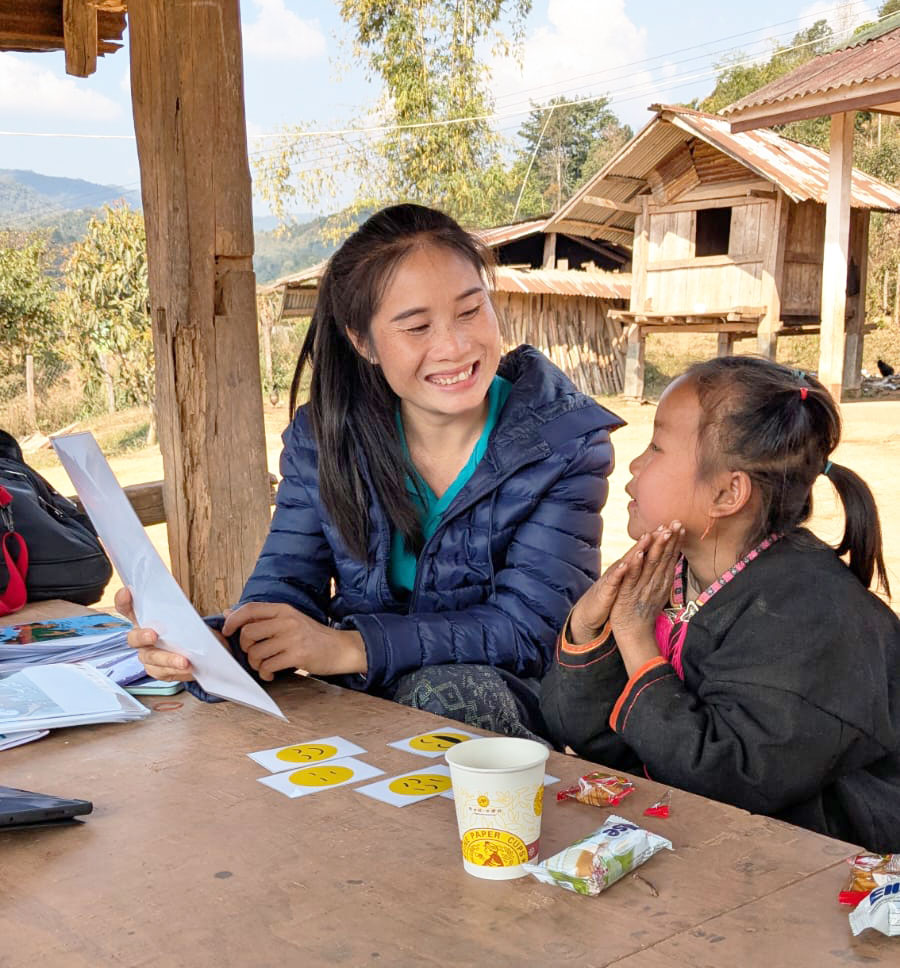
Interviews of students for collective qualittative data for the inclusive study
The second round of qualitative data collection for the Inclusive Study will begin in February in 30 districts
From 10 February – 7 March 2025, a research team of 32 enumerators from several Ministry of Education and Sports (MoES) departments and three Teacher Training Colleges (Luang Namtha, Khang Khai and Savannakhet) will travel to primary schools across 30 target districts to collect the second year of data for the 3-year Inclusive Teaching and Learning study.
The study was launched in 2024 and is led by the Department of Teacher Education (DTE) with support from the Australian Government through the Basic Education Quality and Access in Lao PDR (BEQUAL) program. The objective is to identify quality teaching practices that lead to increased student engagement and improved learning outcomes. The study will explore student belonging, engagement, and their impact on student learning outcomes.
Ms Vongdeuane Osay, Director General of DTE, said “the Department of Teacher Education guided the design of the Inclusive Study and provided guidance to districts and Teacher Training Colleges on how to select schools for the study, how to support the teams collecting data during field visits, and how to facilitate reflection and discussion about initial insights from the data.”
The study covers 30 target districts across seven provinces – Phongsaly, Luang Namtha, Bokeo, Houaphanh, Xiangkhouang, Khammouane, and Savannakhet. In each district, four schools were selected based on diversity factors. These included the presence of students who do not speak Lao at home, students with disabilities, and students with low attendance. Additional criteria considered were the gender of principals and teachers, as well as geographic location, multigrade settings, and whether the school is implementing remedial Spoken Lao language lessons.
The study includes the collection of qualitative and quantitative data over a three-year period. In February and March each year, qualitative case study research will be carried out through interviews with students, parents and their teachers in 21 target schools. In April each year, Lao language tests will be carried out in 120 schools from grade one through to grade two and grade three. Each semester, monitoring data such as classroom observations will be gathered from teachers and the people supporting them.

Enumerators share stories of their childhood teachers who inspired them

Enumerators walking to a remote school to conduct interviews
Ms Vanessa Hegarty, First Secretary, Australian Embassy said “Australia is committed to inclusive education. We believe that all students should have access to quality education that effectively meets their diverse needs in a responsive, accepting, respectful and supportive environment. In the current context of school dropouts, it is crucial to identify the teaching practices that respond best to students’ needs and foster their sense of belonging at school.”
The Inclusive Teaching and Learning study uses a unique ‘belonging’ approach focusing on social, psychological and environmental factors that influence students’ learning. The study will track changes in student Lao language test scores to find out whether improving these factors leads to improved student learning outcomes. Teachers can have a profound impact on students’ lives. During the enumerator training at the beginning of February, MoES staff shared personal stories of teachers who left a lasting impression on them as a student. There were stories of teachers offering a welcoming smile, a listening ear, or words which encouraged students to pursue their dreams. Many of the MoES staff shared stories of teachers who had inspired them to work in the education sector. These inspiring teachers created a sense of BELONGING – a sanctuary where students felt safe, harmony in the group, and recognition of the significance of each students’ unique contributions.
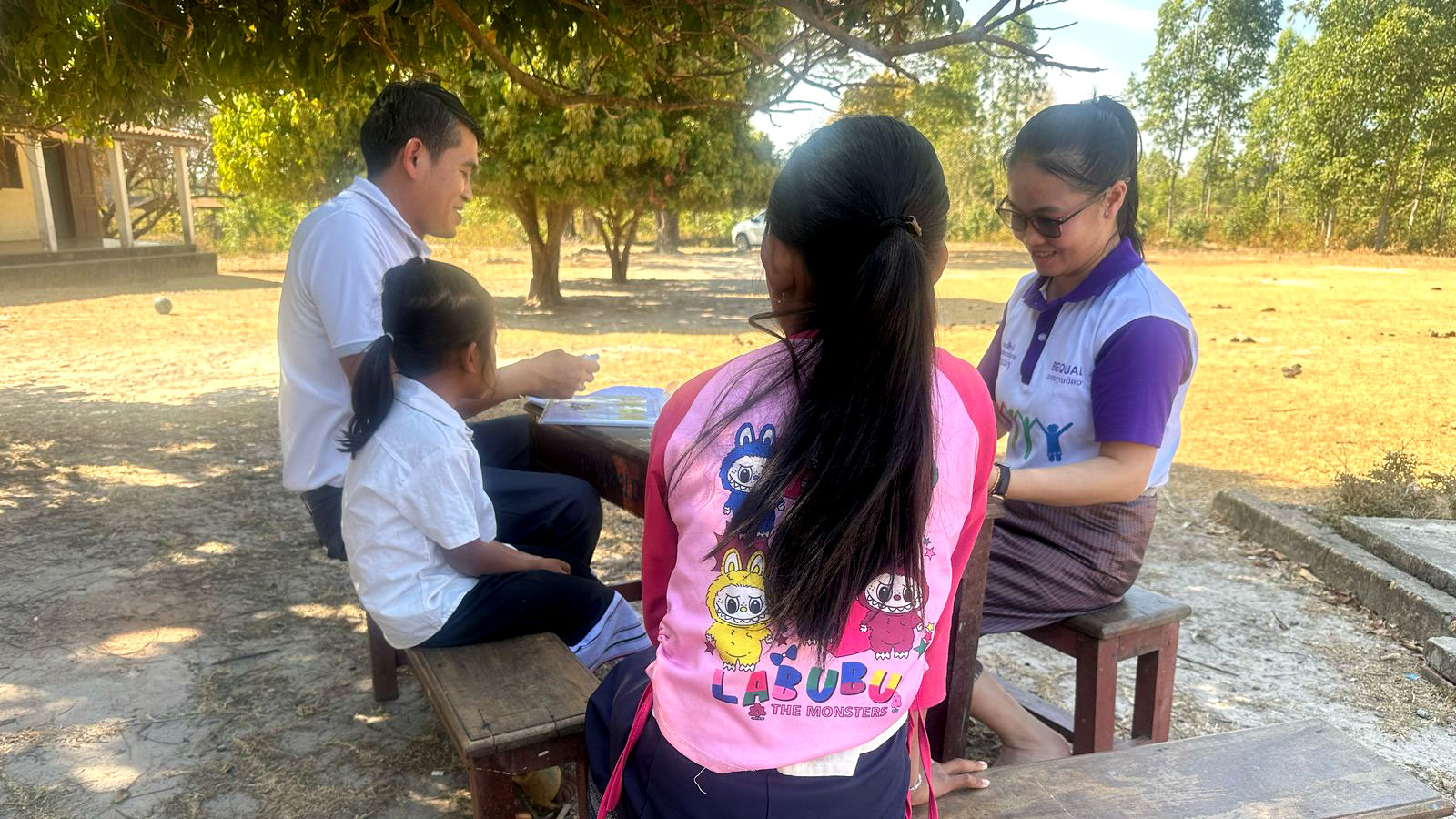
Interviews of students for collective qualittative data for the inclusive study
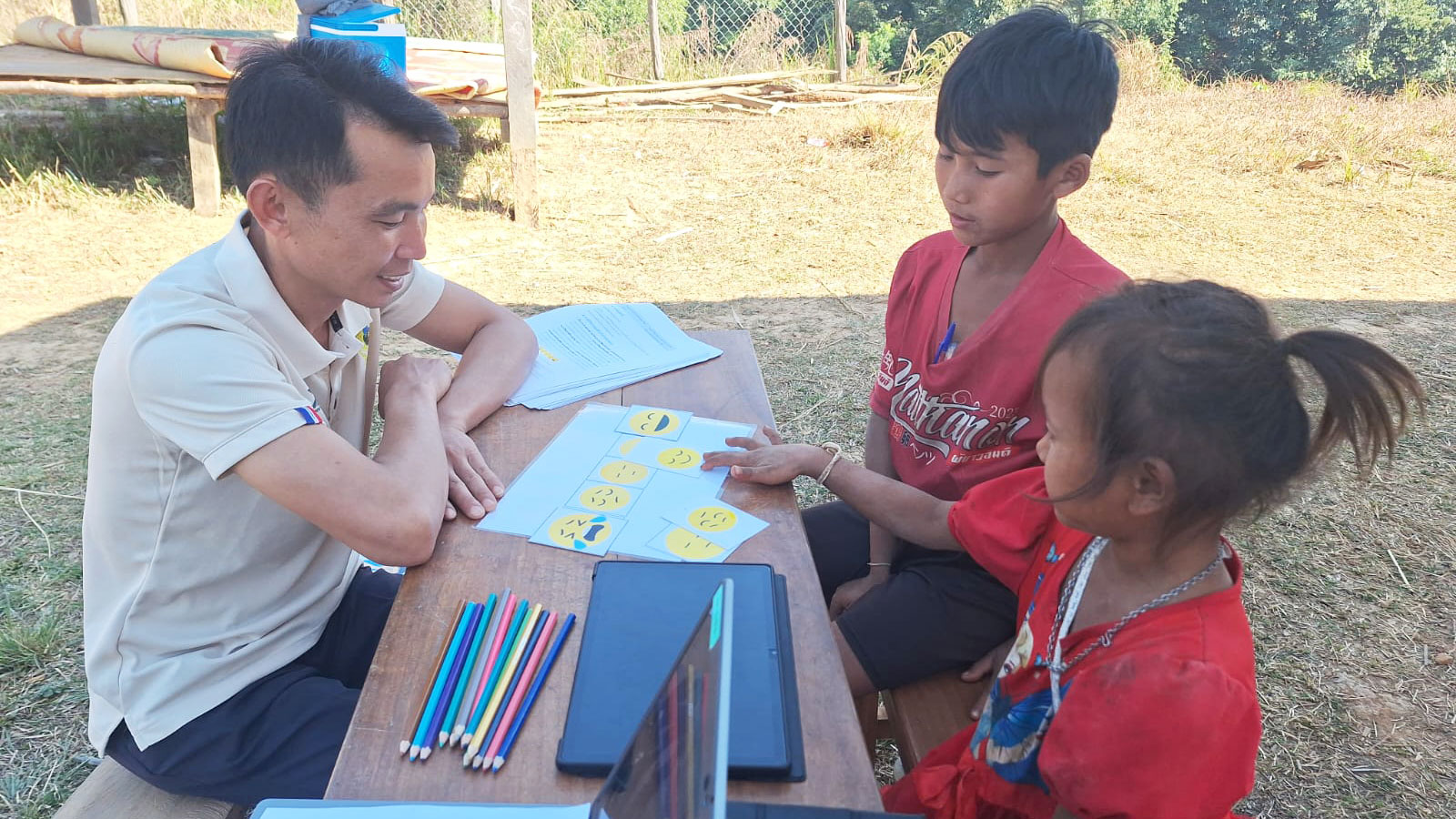
Interviews of students for collective qualittative data for the inclusive study
Ms Vongdeuane added “The study will help us improve our continuing professional development system. We will identify the successful teaching practices that lead to more inclusive student learning in the sample schools. We will look at which continuous professional development approaches were used. Those promising approaches will be shared with teachers and their school community to further support teachers to address students’ needs.”
Ms Vanessa concluded “I am looking forward to the results of this study and continuing our collaboration with the Ministry of Education to identify and promote teaching approaches that encourage an inclusive learning environment for a diverse range of students.”
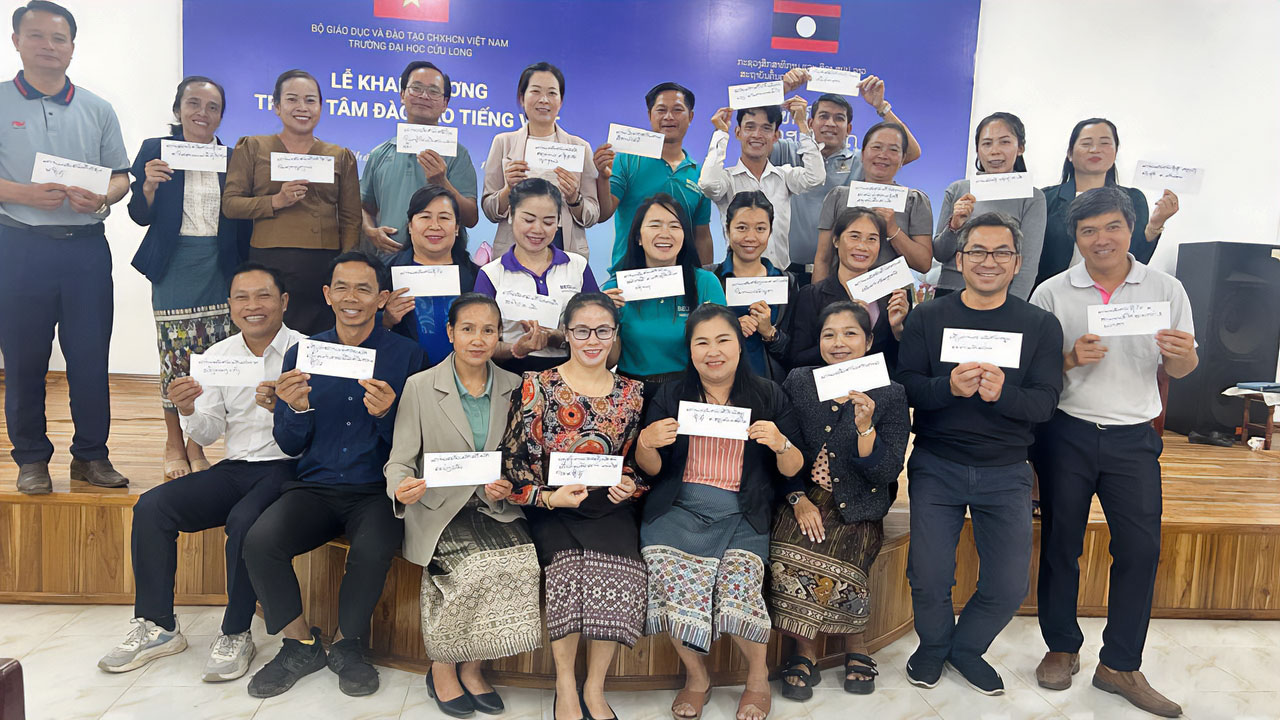
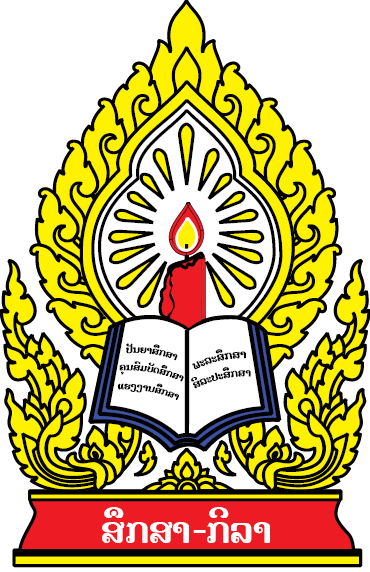
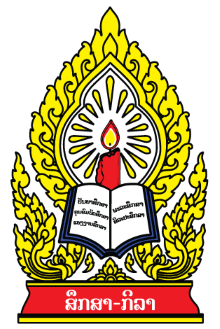


 ພາສາລາວ
ພາສາລາວ